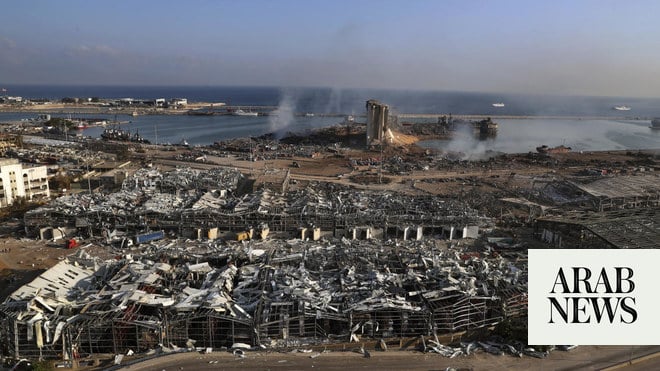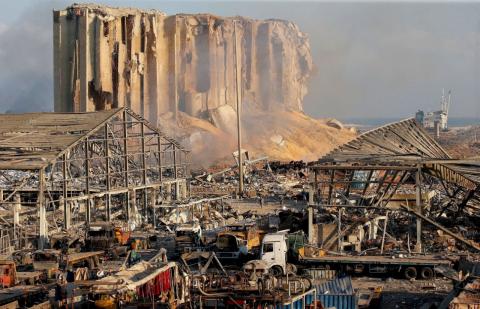
Investigating judge ordered the release of 6 men including an officer, who had warned top officials of dangers of material stored at port
The six will be banned from traveling outside Lebanon, according to a judicial official
BEIRUT: A Lebanese judge investigating 2020’s massive blast at Beirut’s port on Thursday ordered the release of six people, including security officers, who had been detained for months, state news agency reported.
It was not immediately clear what triggered the release of the men, who include an officer who had written a detailed warning to top officials prior to the explosion about the dangers of the material stored at the port.
Judge Tarek Bitar was named to lead the investigation in February after his predecessor was removed following legal challenges by two former Cabinet ministers he had accused of negligence.
State-run National News Agency said Bitar ordered the release of the six including Maj. Joseph Naddaf of the State Security department and Maj. Charbel Fawaz of the General Security Directorate. The four others are customs and port employees.
Nearly 3,000 tons of ammonium nitrates, a highly explosive material used in fertilizers that had been improperly stored in the port for years, exploded on Aug. 4, killing 211 people, wounding more than 6,000 and damaging nearby neighborhoods.
The six will be banned from traveling outside Lebanon, according to a judicial official, speaking on condition of anonymity to follow regulations. The official added that 19 people are still being held in the case. Among those who are still held are the head of the customs department and his predecessor as well as the port’s director general.
In a July 20 report, State Security warned that one of the doors of the warehouse where the material had been stored was separated from the wall enough to allow anyone to enter and steal the ammonium nitrate.
The report that was sent to President Michel Aoun and then-Prime Minister Hassan Diab warned that thieves could steal the material to make explosives. Or, it said, the mass of material could cause an explosion “that would practically destroy the port.”
Holding Naddaf for months had angered some in Lebanon especially that his report two weeks before the blast was a clear warning of the dangers.
The Beirut port explosion has been one of the most traumatic national experiences the Lebanese have faced and families of those killed are skeptical that any investigation into the explosion can be transparent and independent in a country where a culture of impunity has prevailed for decades.












